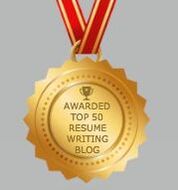How To Quantify Results on Your Resume When Your Job Isn't Big on Numbers“Quantify your achievements” is one of the most common resume writing tips you’ll hear. Sure, adding numbers in your resume bullet points makes it stand out and it helps recruiters imagine the impact you’ve made at your previous job. But this is easier said than done, especially for roles with no easily measured achievements or tasks. It helps to learn how to customize your resume. Here’s where a little creativity goes a long way. To quantify your accomplishments, you have to look beyond the obvious when you think of measurable tasks and the numbers you associate with them. Write it All DownAsk your supervisor about your job’s performance metrics even those not directly tied to your output. Check your annual performance reviews as well because it might have quantifiable information about your job. If you can’t dig up anything, that’s okay. It’s just going to take a bit of elbow grease but there are still plenty of ways to add numbers to your resume. To customize your resume, start with a list of all your responsibilities, skills, and achievements. Write everything you can think of even the ones you obviously can’t quantify. That might change later and you might be surprised how that one task could be rephrased to present your value as a candidate. Now imagine you’re a recruiter browsing resumes, what qualifications would impress you enough to invite a job seeker for an interview? Highlight those qualifications on your list. Below are example skills and duties for three positions with no obvious quantifiable achievements:
Brainstorm Creative Ways To Quantify Your WorkYou should now have a pretty long list of skills, achievements, and responsibilities. Continuing from the example above, ask yourself the following questions to brainstorm ways to quantify your tasks:
These are just some of the questions you can ask but the concept applies to all industries. The key here is to keep an open mind. Take a long hard look at your list, then try to see if any of the following measurements might apply:
Combine Tasks with Numbers and Results for Amazing Bullet PointsIt might be hard to imagine how the questions and the tasks you listed could translate to anything worth including in your resume. That’s because you’re missing one ingredient: the result. How does your task benefit your employer or co-workers? And if a direct benefit can’t be established, how does that task signify the importance and complexity of your role? The examples below will show you how. 2 Strategies for Writing Accomplishment-Oriented and Quantified Bullet Points1. If you’re unsure of the exact numbers involved Ask your supervisor or co-workers to estimate the impact of your work, then make it clear in your bullet point that you’re only providing an estimate. Before: Manage product supply ordering procedure. After: Streamlined inventory purchase procedure to decrease projected surplus by 15%. By adding the word “projected” you’re making it clear that the 15% decrease is just an estimate, but the improved bullet point still feels tangible and shows the impact of your work. Your work may involve a varying number of people, but you could still show recruiters how many depend on you by using a range instead of an exact number. Before: Assisted undergraduate students with thesis-related projects After: Assisted 15 to 20 undergraduate students with thesis-related projects 2. Establish Productivity Rate and Impact Using Frequency Repetitive tasks, even those with no direct relation to the bottom line, show how much work you can handle. Don’t let those tasks go to waste, add a frequency to quantify them so recruiters can see how hardworking you are! Before: Manage company trunkline. After: Manage company trunkline connected to 5 different departments, receiving an average of 250 calls a day. Before: Read and graded essays of grade 8 English students. After: Read and graded essays of grade 8 English students for 5 classes, or about 250 students. Source: https://www.market-connections.net/blog/how-to-quantify-results-on-your-resume-when-your-job-isnt-big-on-numbers About the AuthorMandy Fard is a Certified Professional Resume Writer (CPRW, CMRW) and Recruiter with decades of experience in assisting job seekers, working directly with employers in multiple industries, and writing proven-effective resumes. |
Categories
All
powered by Surfing Waves
AuthorMandy Fard is a Certified Professional Resume Writer (CPRW, CMRW) and Recruiter with decades of experience in assisting job seekers, working directly with employers in multiple industries, and writing proven-effective resumes. Archives
July 2024
|
-
Greater Los Angeles
and Kern County
-
[email protected]
.




 RSS Feed
RSS Feed



